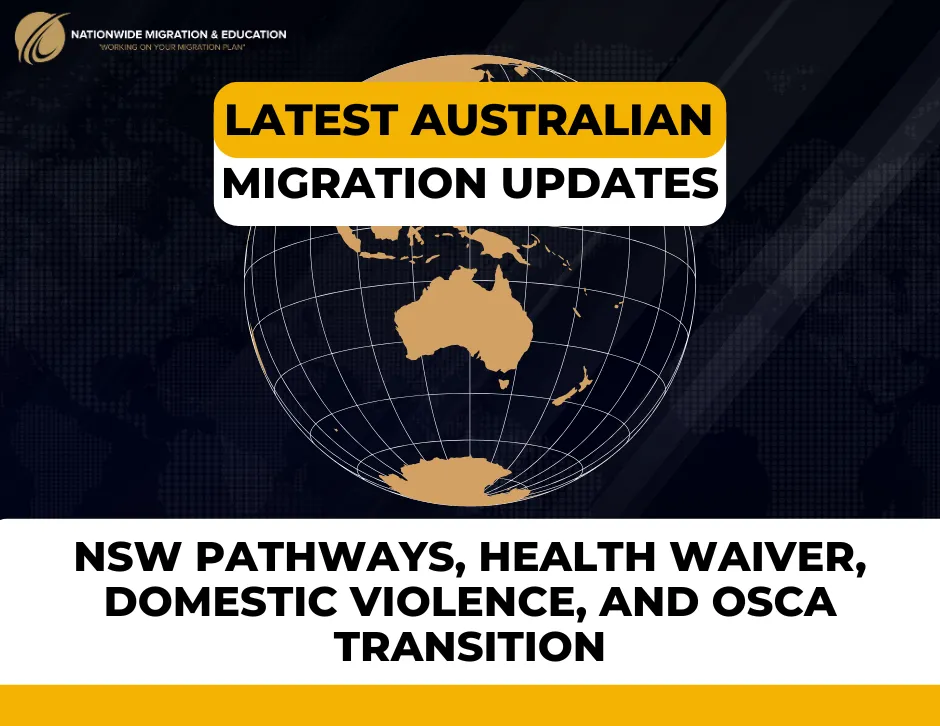Suman Dua MARN 1800859Nov 28, 20243 min read
Updated: Jan 9
Today’s blog highlights significant updates in Australian migration. Each of these changes could impact your pathway to residency, and our team of registered migration agents is here to guide you through them.
Pathway 1:Designed for applicants currently working in their nominated or closely related occupation in a designated regional area of NSW, Pathway 1 includes these key eligibility requirements:
The residency requirement for Pathway 1 has been removed, meaning you don’t have to live in regional NSW to qualify as long as you work there. This is an excellent opportunity for eligible workers living outside regional NSW.
Pathway 3:Pathway 3 caters to graduates who have completed a bachelor’s degree or higher at a regional NSW institution. To qualify:
Both pathways have limited places, and Investment NSW reserves the right to close applications once quotas are filled or refuse applications that don’t meet the criteria. Acting promptly is essential if you’re eligible.
Our team of registered migration agents can help you navigate this process and ensure your application is competitive.
The Family Violence Provisions protect secondary applicants for permanent skilled pathways, including the Employer Nomination Scheme, Regional Sponsored Migration Scheme, and Global Talent programs.
Key Provisions:
Secondary applicants with accepted family violence claims can:
Our team provides compassionate and professional support for these sensitive cases. Reach out to us for assistance.
Amendments to PIC 4005 and 4007 bring key updates to health requirements for minor applicants born and residing in Australia. These children are now exempt from proving they’re free from conditions that might incur significant healthcare costs or impact access for Australian citizens and residents.
This change offers greater fairness and flexibility for families, simplifying the process for applicants with unique healthcare needs.
Starting 6 December 2024, the Australian Bureau of Statistics will transition to the Occupation Standard Classification for Australia (OSCA). This modernized system reflects current labor market needs.
Key Points:
This update aligns Australia’s occupational classifications with its evolving labor market, providing clarity for skilled migration applicants.
These changes may affect various aspects of your migration journey, including skilled migration pathways, health requirements for family members, or eligibility for NSW’s new pathways.
At Nationwide Migration, we provide reliable, personalized guidance to help you adapt to these updates and secure your best pathway to residency.
If any of these updates apply to you, book a consultation with our experienced migration agents today.
Disclaimer:
The information shared by Nationwide Migration and Education is for general informational purposes only. While accurate at the time of publication, details may change. This content is not intended as legal or migration advice. For advice tailored to your circumstances, please book a consultation with a Registered Migration Agent.
